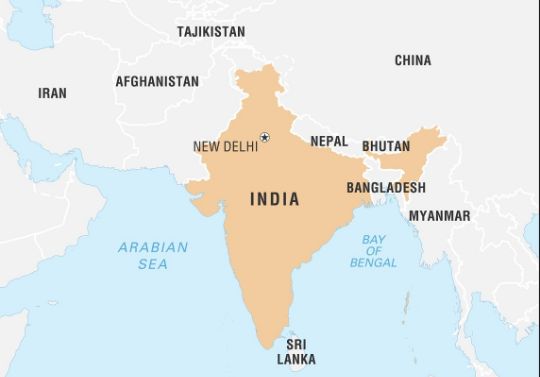Police & Prosecution
A.G. Noorani | 16 January 2021
IN the course of the election campaign for the Lok Sabha polls, Narendra Modi warned the police, especially the Central Bureau of Investigation, that one day, he and his party, the Bharatiya Janata Party, would also come to power. Since he became prime minister of India in May 2014, Modi has fully lived up to his threat.
This is not to say that other politicians smell of roses. What distinguishes Narendra Modi is the systematic abuse of the investigation agencies in an organised campaign to crush and wipe out the entire opposition. The newspapers are full of reports of cases launched against persons who are in opposition to the Modi regime.
Mohammed Yasin Malik’s case alone provides a revealing example of this vendetta. He is leader of the Jammu and Kashmir Liberation Front, a successor to Maqbool Bhat, who was executed by the government of India in 1984 in retaliation for the murder of an Indian diplomat in the UK. Like Bhat, Yasin Malik stood for Kashmir’s independence. This ranged him against the pro-Pakistan Syed Ali Shah Geelani and Maulana Umer Farooq.
Like all others, the outbreak of militancy in Kashmir in 1989 provided them with an opportunity to play martyr. Before long, a new outfit appeared on the scene, the Hizbul Mujahideen, which is for Kashmir’s accession to Pakistan. Unlike the Jammu and Kashmir Liberation Front, the Hizb is an amalgam of parties opposed to India ¬— vastly more powerful and active than the Jammu and Kashmir Liberation Front. The Hizb’s long-standing leader is Syed Salahuddin. Like the Turk, the Hizb tolerated no rival. It soon launched a campaign to eliminate the rival cadre and its leaders.
Yasin Malik’s case is a revealing example of Modi’s political vendetta.
Matters came to such a pass that on April 2, 1993, the Hizbul Mujahideen and Jammu and Kashmir Liberation Front signed a written agreement with four elaborate points on good behaviour by both sides.
Yasin Malik has a monumental ego but was aware of the realities. He had become a nobody. As Amar Singh Dulat, former head of the Research and Analysis Wing (India’s external intelligence agency) remarked: “Yasin Malik was burnt out by 1993 or 1994.”
Persecution will infuse life in him and make him a martyr. The charges are: a special court “framed charges against Jammu and Kashmir Liberation Front chief Muhammad Yasin Malik in the Rubaiya Sayeed case, 31 years after then union home minister’s daughter was abducted by militants”. This was not news.
Malik is lodged in Tihar jail in New Delhi in an alleged illegal funding case. The Jammu and Kashmir Liberation Front has been banned since 2019.
“For 31 years, he was neither arrested nor summoned in the case. What is the exigency now? They [the government] want to stop him from coming out of jail,” said Yasin Malik’s friends. His family maintain that his trial was unfair.
Malik said in a letter written in prison that he had “declared unilateral ceasefire” in 1994 “without surrendering his ideology to give peace a chance” on the “insistence of top intelligence officers” and civil society members, and that in exchange for pursuing a peaceful protest rather than an armed struggle he was promised political space.
Lord Denning set the legal tone for police departments to follow the law in an impartial manner, in a case resting on the same principles on which India’s supreme court intervened in the Hawala scandal. Confidential instructions had been issued to the Metropolitan Police to not proceed against clubs violating gambling rules unless there were complaints of cheating or other major offences. Implicit in such directions was official connivance where violation of gambling laws was being committed. The policy decision was taken back.
In a pronouncement widely regar¬ded as precedent-setting, Lord Den¬¬n¬ing said: “I hold it to be the duty of the Com¬missioner of Pol¬ice, as it is of every chief constable, to enforce the law of the land.
“He must take steps so to post his men that crimes may be detected, and the honest citizens may go about their affairs in peace. He must decide whether or not suspected persons are to be prosecuted and, if need be, bring the prosecution or see that it is brought, but in all these things he is not the servant of anyone, save of the law itself.
“No Minister of the Crown can tell him that he must, or must not, keep observation on this place or not, or that he must, or must not, prosecute this man or that man. Nor can any police authority tell him so. The responsibility for law enforcement lies on him. He is answerable to the law and to the law and the law alone.”
Yasin Malik is not the only Hurriyat leader to face charges. The highly respected Mir Waiz Umer Farooq also faces harassment.
All this is a total reversal of the legal position. The police is a creature of a statute. No politician in power can tinker with it.
A.G. Noorani is an author and a lawyer based in Mumbai.
This article was originally published on Dawn.
Views in this article are author’s own and do not necessarily reflect CGS policy.
